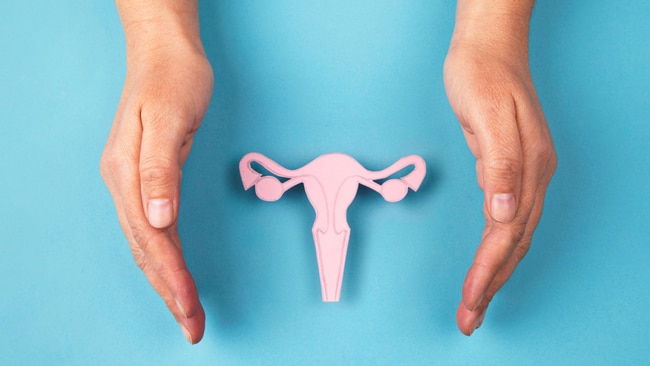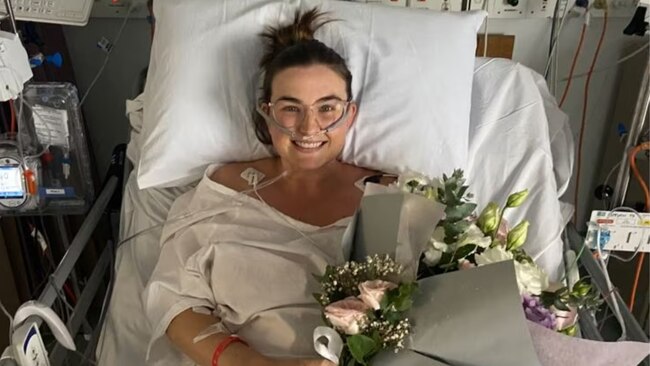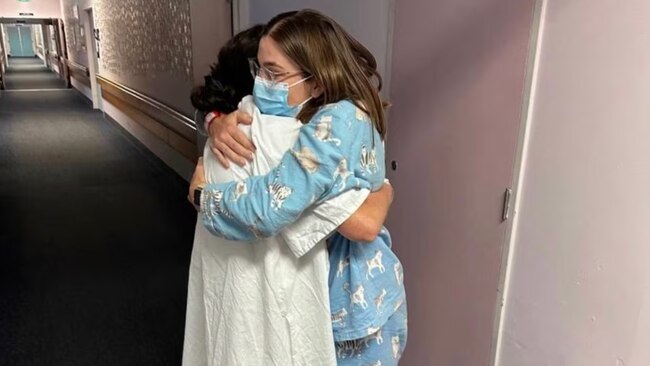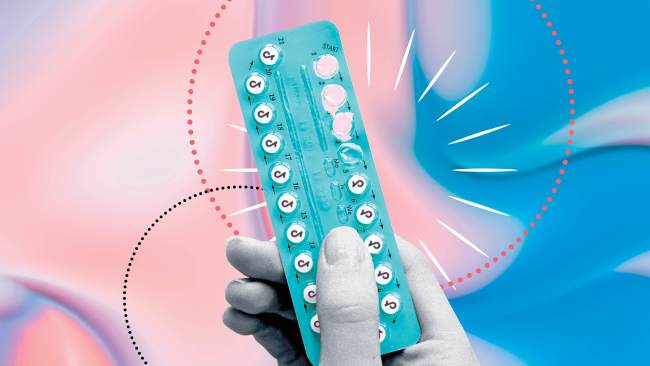Mum donated her uterus to her daughter in an Australian medical first
“I didn’t hesitate, I straight away said, ‘yep, that’s not a problem.’”

Lifestyle
Don't miss out on the headlines from Lifestyle. Followed categories will be added to My News.
History has been made after an Australian woman underwent the country’s first successful uterus transplant with the help of her mum.
In an incredible medical breakthrough for women everywhere, a Coffs Harbour woman has become the first person to undergo a successful uterus transplant in Australia.
Lasting 16 hours and with a team of more than 20 medical staff, 30-year-old Kirsty Bryant underwent the surgery at The Royal Hospital for Women in Sydney in January and received a donor uterus from her mum as part of the hospital’s ongoing research trial.
Hoping to have more children in the future, the transplant also means Bryant could also become the first woman in Australia to birth a child from the womb in which she was born.
Michelle Hayton had a hysterectomy to provide 30-year-old daughter Kirsty Bryant with the chance to
Like what you see? Sign up to our bodyandsoul.com.au newsletter for more stories like this.
“I feel incredibly lucky that not only did I get accepted into the trial but mum and I have now been the first,” Bryant told the ABC following the surgery.
Marking a huge advancement in women’s reproductive health, Bryant discovered the opportunity after having a life-saving emergency hysterectomy following the birth of her first child. And while over 70 uterus transplants have been performed around the world, Bryant’s was the first in Australia.
“Kirsty’s not just my daughter, she’s my best friend,” Bryant’s mum, Michelle Hayton, said.
“She called me and she said to me, ‘hey mum, hypothetically if you could do a hysterectomy and I could have your uterus, would that be something you would do? I didn’t hesitate, I straight away said, ‘yep, that’s not a problem’”.

The first stage of the surgery was Hayton’s hysterectomy, something performing gynecologist Dr Jason Abbott described as the “hardest job of the two”.
Lasting around 10 hours, Abbott said the first leg of the transplant was “nothing like any hysterectomy I’ve done”. From there, Bryant’s surgery began, which lasted around six hours.
Incredibly, Bryant’s body accepted the uterus immediately and just 32 days after surgery she got her period.
With embryos in storage and plans for more children, Bryant says the next step is having a baby, with plans for an embryo transfer later this year.
“That’s the ultimate proof of response,” Dr Abbott said. “It’s not about having a period, it’s about having a baby.”

As part of the study, the Royal Hospital for Women has been approved to conduct a total of six uterine transplants, which are designed to last for around five years and extend the window in which women facing reproductive issues can have children.
“A lot of people go through their life thinking they can’t carry a baby and now this gives them options,” Hayton said of her daughter’s successful surgery.
Speaking of her mum’s generosity and becoming the first to receive the surgery, Bryant said, “I’m just incredibly grateful that in Australia we are moving towards this sort of research and hopefully giving other women options.”
Originally published as Mum donated her uterus to her daughter in an Australian medical first


